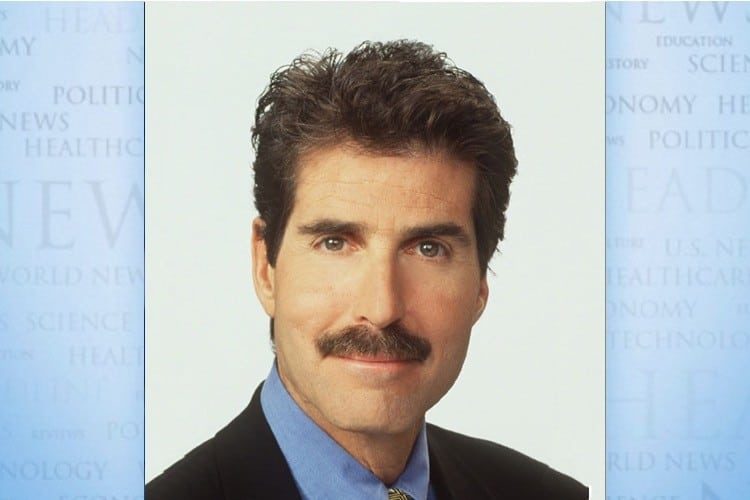
“Palestine will be free!” chant the protesters. “From the river to the sea.”
Some say that’s a call for genocide — another holocaust — elimination of Israel and all Jews.
So, should the chant be illegal?
The House of Representatives just voted to make it illegal at universities. Both Republicans and Democrats voted for the bill.
Canadian politicians go further. Prime Minister Justin Trudeau wants people “advocating genocide” sentenced to life in prison.
“We’re a laboratory of bad ideas,” says Canadian Ezra Levant in my new video.
Levant, founder of Rebel News, asks, “Who’s going to determine who’s going to be prosecuted? A law like that gives a politician the chance to criminalize his peaceful opponent!”
Canadian politicians already do that.
“I wrote a (critical) book about Justin Trudeau,” says Levant, “a knockoff of ‘The Sopranos.’ I called it ‘The Libranos’ because he’s with the Liberal Party. He hated that book. … and so, I was prosecuted.”
Levant was called before investigators working a government organization that polices “unregistered political advertising.”
“They fined me,” he says. “Five years later, I’m still in court over a book that criticized Justin Trudeau.”
“Canadians must like this,” I tell him. “Trudeau gets reelected.”
“A lot of Canadians and Americans and Brits,” he sighs, “want a net nanny — for the other guy.”
Brazil already has that.
A judge there recently ordered X to block the Twitter accounts of people who support the former Brazilian president.
Elon Musk refused. He said, “We will probably lose all revenue in Brazil and have to shut down our office there. But principles matter more than profit.”
Good for Musk.
A new law in Scotland says “misgendering” someone, like calling a trans woman “he,” can get you seven years in jail.
“Freedom of speech and belief are at an end,” responded “Harry Potter” author J.K. Rowling.
The day Scotland’s new law took effect, she intentionally broke it by misgendering people on Twitter, saying, “I look forward to being arrested.”
By law, she should have been.
Last year, British police arrested thousands of people for “spreading hate” on the internet.
“J.K. Rowling has the wealth to fight a strong defense,” Levant points out. “She and Elon Musk are the two people in the world who have done more to stop cancel culture.”
Being “canceled” shouldn’t be an issue in America. Our First Amendment says, “Congress shall make no law … abridging the freedom of speech.”
Should that “River to the Sea” House bill become law, it would be something new.
Americans have mixed feelings about free speech. A RealClearPolitics poll reports that 61% believe government should restrict hateful posts. Yikes. Government? Will the party in power get to decide what’s “hateful”?
“I don’t think you reduce hate when you police it in that way,” says Levant. “The ability to speak the truth is a more pressing value. Even if we’re going to hurt a feeling, even if we’re going to upset the apple cart, that’s what freedom of speech means. It trumps other values. Give people that peaceful outlet for their grievance.”
“If you cork them up, if you don’t let them have the safety valve of free speech, they’ll explode in another way, possibly including violence … Free speech is a preventive mechanism that prevents an escalation of problems.”
I agree. It’s good that so far, American police say their campus arrests are for trespassing or property damage, not words.
I don’t agree with what most of the demonstrators say.
But I’ll defend their right to say it.
Every Tuesday at JohnStossel.com, Stossel posts a new video about the battle between government and freedom. He is the author of Give Me a Break: How I Exposed Hucksters, Cheats, and Scam Artists and Became the Scourge of the Liberal Media.
COPYRIGHT 2024 BY JFS PRODUCTIONS INC.




